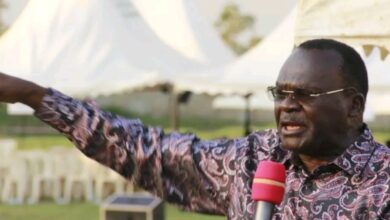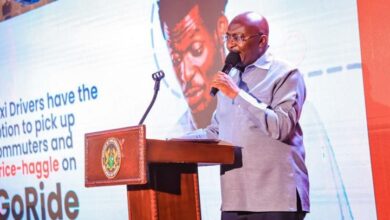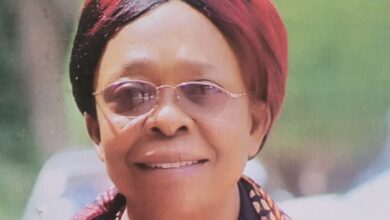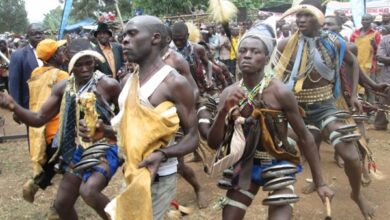Empowering seniors in climate action
In addition, we must also recognize the role of family in this matter; family members often bear the stress of caring for aging relatives, balancing their own financial struggles while trying to provide support for them.
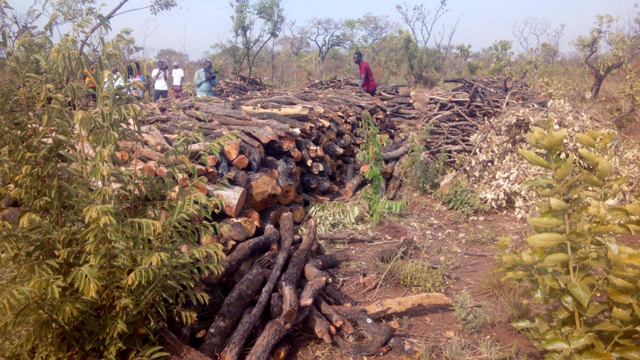
Op-Ed: By failing to streamline or shade light on elderly wisdom, we miss out on what would have been the best approach to address the African climatic problem in the African way.
Elders are the bearers of history, the keepers of wisdom, and the unsung heroes of society who have contributed tirelessly to our communities. Yet in many cases, the lack of their inclusiveness in measures to achieve climate, environmental and human rights justice, and sustainable community livelihoods leaves them vulnerable, struggling and suffering in silence in our communities.
As a member of the community, Nyahaira village in Kabaale Sub-county, where our elders live, struggling with the impacts of climate change, environmental destruction, and oil development activities, I can’t dare to see them struggling anymore with life and remain shut. Therefore, I stand firm to put my opinion on board since I feel it’s more of a curse to see an 80-year-old do “leja leja” for survival.
With the rising cost of living, isolation, and neglect in all initiatives, most of our elders find it difficult to live in communities that are less valued, in tricky financial situations, unable to support themselves, can’t afford medications and other basic necessities like food and clothing, and above all, are less valued.
These challenges are worsened by systematic issues such as relocation caused by the discovery and ongoing development activities of oil and climate change impacts that took our gifted land with natural livelihood restoration gears the water sources, the fruit trees like mangoes, jackfruits, oranges, lemons, guavas, and avocados that they would sell to earn a living, yet all is no more. Ageism, lack of access to resources, neglect, and isolation of elders in line with their unique needs are other issues.
While various programs may exist to assist younger populations in transitioning to new careers or skills development, similar initiatives for our aging population are absent. This error not only lowers their dignity but also undermines their potential contributions to our community, yet they are the keepers of wisdom and the history bearers.
Morever, the elders are eager, willing, and able to share their expertise in mentoring roles, craftsmanship, or even community service. However, without the right support structures in place, these invaluable opportunities go untapped, which is why Nature Talk Africa, in conjunction with the Oil Refinery Residents Association, has looked deep into their partnership initiative: reactivating Indigenous knowledge and amplifying local voices in climate change actions.
A campaign that has resulted in another “Building eco-friendly villages” where our oil-affected community elders are brought into play, the mentors of our local young climate activists and environmental and human rights defenders in our oil-affected societies of Hoima, Kikuube, and Buliisa districts. These initiatives only lack funds to reach more societies and bring on board more elders.
Many elders experience feelings of worthlessness and despair when they can no longer provide for themselves. “Why delaying, take me away, Lord?” is a common saying among these struggling elders, meaning the world is just punishing them, yet their ancestral elders didn’t feel all this they are going through.
The isolation, not including them in climate action, and the shame of being poor contribute to declining mental health; this can as well shorten their lives. I call for more support in reviving the indigenous knowledge and practices in climate actions and environmental conservation efforts through prioritizing elder mentorship programs as initiated by Nature Talk Africa, NaTA, and the Oil Refinery Residents Association, ORRA.
By investing in the programs that include elders’ expertise and offer not just financial assistance but also community engagement and social support, we can help restore their sense of purpose and well-being. In addition, we must also recognize the role of family in this matter; family members often bear the stress of caring for aging relatives, balancing their own financial struggles while trying to provide support for them.
Effective participatory climate actions, environmental-related discussions, and livelihood restoration programs like workshops on traditional crafts and teaching traditional skills like weaving, pottery, or woodworking that resonate with the cultural background and value elders skills, knowledge, and wisdom can empower elders to create marketable products that would reduce the burden on their relatives to provide them with basic needs.
Equipping elders with the means to care for themselves, fostering resilience and independence, and being considered important mentors for the current environmental and climate change discussions will bring harmony in the family and a long life for the elders.
In advocating for climate justice, environmental conservation, and sustainable and comprehensive livelihood restoration programs, we must also call for policy changes that prioritize the welfare of elders, who are the custodians of wisdom and sustainable livelihoods. In developing climate actions and environmental-related topics, we owe it to be considerate of elders’ participation from the planning stages to implementation and monitoring and evaluation processes.
The government should collaborate with the non-profit organizations, oil companies, religious bodies, institutions, and community groups to create initiatives that not only provide immediate relief but also promote long-term sustainability, recognizing that elderly citizens are not merely recipients of charity but active participants in society.
I therefore call upon the young, energized future elders that it’s time for us to firmly advocate for a future where the elderly population is included, respected, supported, and empowered to take action by establishing strong inclusive mechanisms in achieving climate justice and sustainable community livelihoods.
We can ensure that elders do not suffer in silence or live in poverty, but rather flourish with dignity and respect. It’s not merely a matter of policy; it is a moral obligation that reflects the values of our elders in our societies. Let us not forget those who paved the way for future generations let us restore their livelihood and honor their loved legacy.
The author is Okwai Stephen, field officer at Nature Talk Africa.
Disclaimer: As UG Reports Media LTD, we welcome any opinion from anyone if it’s constructive for the development of Uganda. All the expressions and opinions in this write-up are not those of UG Reports Media Ltd. but of the author of the article.
Would you like to share your opinion with us? Please send it to this email: theugreports@gmail.com.


